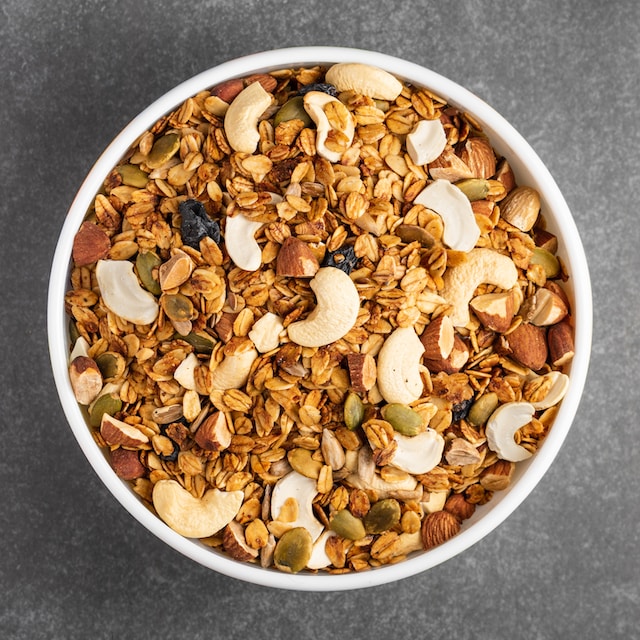Best anti-inflammatory foods: The way to a healthier lifestyle
In today’s fast-paced world, chronic inflammation has emerged as a significant health concern, silently impacting millions of lives. This underlying cause of numerous chronic diseases, including heart disease, diabetes, and arthritis, can be significantly influenced by our dietary choices. Understanding and incorporating anti-inflammatory foods into our diet can be a powerful step toward optimal health and wellness.
Understanding inflammation
Inflammation is essentially the body’s alarm system, a call to action against invaders and injuries. However, when this response becomes chronic, it silently undermines our health, contributing to major diseases. Our diet plays a pivotal role in either fanning the flames of inflammation or soothing them. By choosing foods rich in antioxidants and omega-3 fatty acids, we can significantly dampen the inflammatory process and protect our bodies from the inside out. [1]
Best anti-inflammatory foods
The cornerstone of an anti-inflammatory diet is diversity, incorporating a rainbow of fruits and vegetables, whole grains, lean protein, and healthy fats. Each food group brings its unique anti-inflammatory compounds to the table:
- Fruits and vegetables: The vibrant colors of fruits and vegetables are not just for show. They indicate the presence of powerful antioxidants such as flavonoids and carotenoids that neutralize free radicals, reducing inflammation.
- Omega-3 fatty acids: Found abundantly in fatty fish, chia seeds, flaxseeds, and walnuts, omega-3 fatty acids are renowned for their ability to reduce inflammation throughout the body, particularly beneficial for heart health and cognitive function.
- Whole grains and fiber: High-fiber foods and whole grains reduce levels of C-reactive protein (CRP) in the blood, a marker of inflammation, while also aiding in digestive health and weight management.
- Herbs and spices: Beyond adding flavor, many herbs and spices are loaded with anti-inflammatory compounds. Turmeric, for instance, contains curcumin, a compound with strong anti-inflammatory and antioxidant effects.
Incorporating anti-inflammatory foods into your diet
Incorporating these foods into your diet doesn’t have to be a chore or involve drastic changes. Small, simple swaps and additions can make a big difference:
- Opt for whole fruits and vegetables over juices to get the full benefit of their fiber and nutrients.
- Integrate a portion of fatty fish into your meals twice a week.
- Choose whole grain options where possible, such as brown rice or whole wheat pasta.
- Experiment with herbs and spices, adding turmeric to smoothies or ginger to teas.
Special diets for enhanced anti-inflammatory benefits
Adopting specific dietary patterns can amplify the anti-inflammatory effects:
- The Mediterranean diet is lauded for its emphasis on whole foods, healthy fats, and seafood, providing a balanced and sustainable approach to reducing inflammation. For a deeper dive into nutritious eating, consider exploring Nutrition for comprehensive insights.
- A Vegetarian diet, when well-planned, offers a plethora of plant-based nutrients and antioxidants that combat inflammation. It’s crucial to ensure a balanced intake of proteins and vitamins to meet nutritional needs, which is well-covered under Nutritional Needs for Vegetarians.
- While a Fat-free diet might sound appealing, it’s essential to differentiate between healthy fats and harmful fats. Eliminating unhealthy trans and saturated fats is beneficial, but including healthy fats from sources like avocados and nuts is crucial for overall health and combating inflammation. Learn more about the balance of fats in a diet at Exploring a Fat-Free Diet.
Lifestyle tips for reducing inflammation
Diet is just one piece of the puzzle. A holistic approach to wellness, incorporating regular physical activity, adequate hydration, stress management, and quality sleep, works synergistically to reduce inflammation. Each element supports the body’s natural ability to heal and maintain balance.
Avoiding pro-inflammatory foods
Being mindful of foods that can trigger inflammation is equally important. Processed foods, high in sugar and unhealthy fats, along with certain allergens like gluten and dairy for sensitive individuals, can significantly contribute to inflammation. Listening to your body and identifying any foods that exacerbate inflammation is key to tailoring a diet that best supports your health. [2]
Conclusion
Embracing an anti-inflammatory diet is about making choices that support your body’s health and well-being. It’s a journey of discovery, learning which foods nourish your body and which to avoid. With each meal, you have the opportunity to positively impact your health, reduce inflammation, and enhance your quality of life.
Key takeaways
| Key Point | Takeaway |
|---|---|
| Diversity in Diet | Embrace a variety of anti-inflammatory foods for a holistic approach to health. |
| Listen to Your Body | Identify personal food triggers and adapt your diet accordingly. |
| Lifestyle Matters | Complement dietary efforts with physical activity, hydration, and stress management. |
| Sustainable Changes | Implement gradual and sustainable dietary changes for long-term benefits. |
FAQ
How can I ensure variety in my anti-inflammatory diet?
Ensuring variety involves incorporating a wide range of fruits, vegetables, whole grains, and protein sources into your meals. Try new foods regularly, and experiment with different herbs and spices to keep your meals interesting and nutritious. Shopping seasonally can also introduce natural variety into your diet throughout the year.
What if I have food allergies or sensitivities?
If you have food allergies or sensitivities, it’s essential to tailor your anti-inflammatory diet to avoid those triggers. Work with a healthcare professional or a dietitian to identify safe and beneficial foods. Many anti-inflammatory foods are naturally gluten-free and dairy-free, and alternatives can often be found for common allergens.
Can supplements replace whole foods in an anti-inflammatory diet?
While supplements can provide specific nutrients, they should not replace whole foods. Whole foods offer a complex nutritional profile, including fiber, antioxidants, and other beneficial compounds that supplements cannot fully replicate. Supplements may be beneficial in some cases but consult with a healthcare professional to determine what’s best for your individual needs.
Sources:
- Source 1: health.harvard.edu
- Source 2: health.clevelandclinic.org

